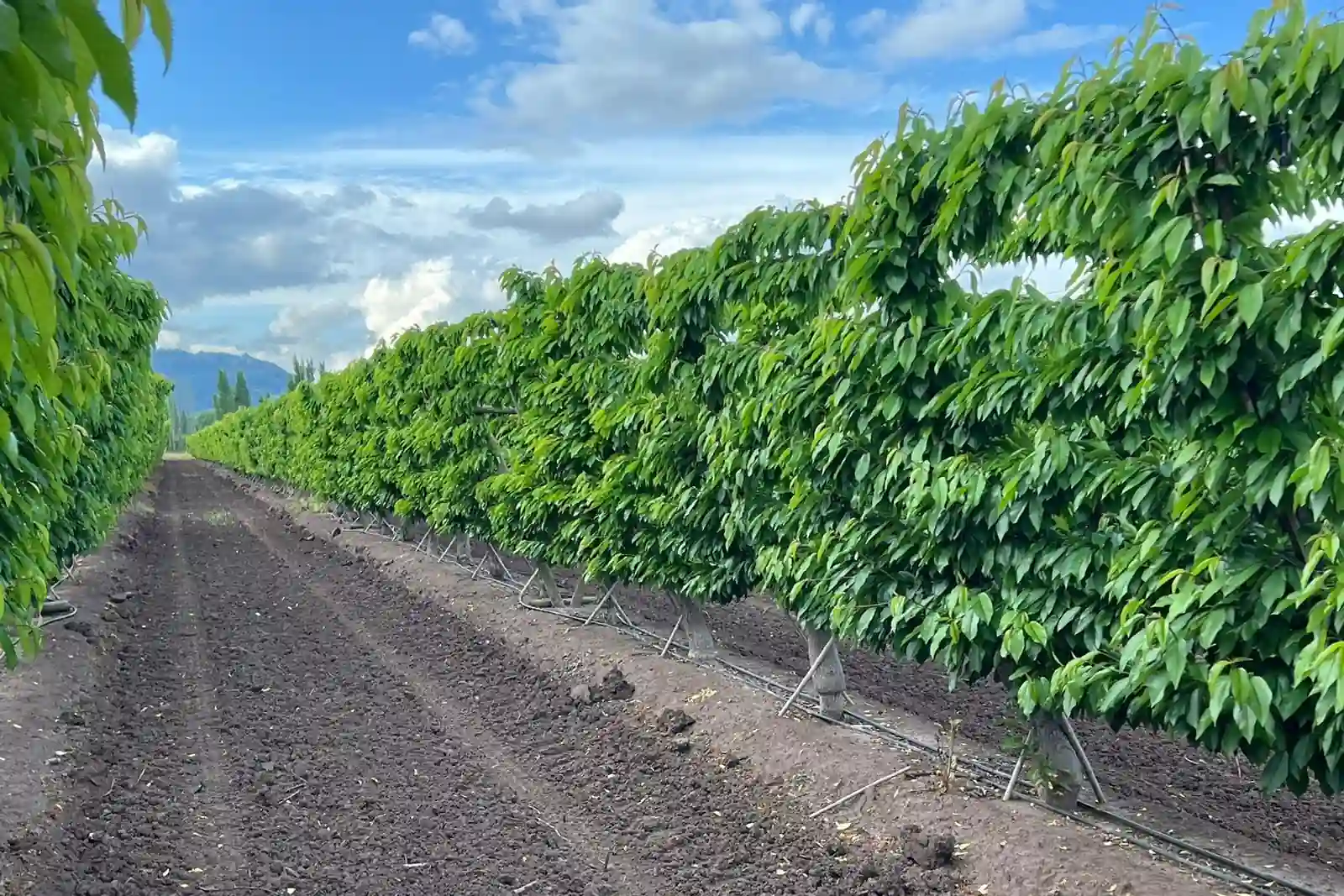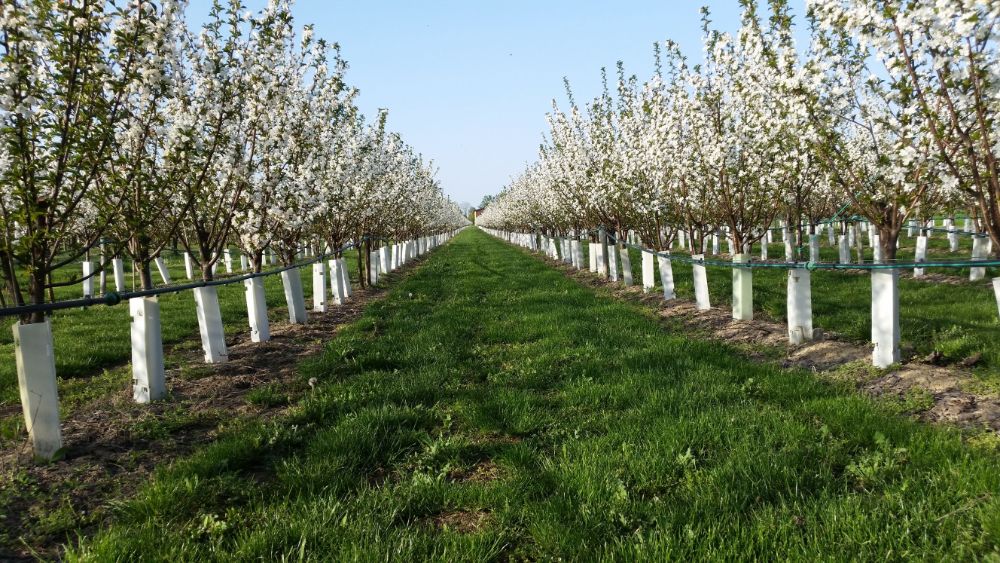In order to continue to chart a course for genetically modified foods in North America as more convenient and nutrient-rich options than their conventional counterparts, food start-up Pairwise has decided to abandon its first CRISPR-modified product, a mustard salad that was successful in retail sales, to focus on developing fruit crops such as pitted cherries and blackberries, as well as improving its architecture for greenhouse growth.
Last autumn, when Pairwise launched its modified mustard salad Conscious Greens in select markets, it was the first food in the US developed using CRISPR technology to modify the basic DNA of mustard greens to preserve their nutrition and vibrant purple hue, while eliminating the unpleasant bitter taste commonly associated with members of the Brassica family.
The launch gave the company the opportunity to test its hypothesis: when consumers are presented with a product that offers tangible benefits, tastes good and is affordable, they accept the technology used to create it.
'We have been promoted with flying colours and have received very positive feedback from consumers,' CEO and co-founder Tom Adams told FoodNavigator-USA.
"Even the 25 per cent of people who, when asked an abstract question in a survey about whether they would eat genetically modified foods were a little sceptical, when the salad was put in front of them they ate it. Only about 1% of people did not want to eat the salad, and it is not even clear whether this was due to the technology or the fact that it was not organically grown'.
However, Adams said the company also realised it did not have the resources to effectively market the salad kits and continue to develop genetically modified products. "Every dollar we spend on marketing is a dollar we don't spend on producing the next interesting product," Adams said.
"After much thought, we decided that instead of continuing to push Conscious Greens marketing, we would look for partnership opportunities with someone who is more established in the salad industry and can do a better job," he explained.
He added that Pairwise is "in the process of identifying the right partner to take this product forward" and hopes to reach an agreement in the first half of the year. Potential partnerships could focus on the production and marketing of finished salad kits or the cultivation and distribution of vegetable seeds that Pairwise has created through gene editing.
"Our goal is to conclude a deal as quickly as possible. We don't want it to be a distraction for us. We think we have created a good product. We want consumers to have that product available. It would be nice to have a return on the investment we have made to get this far,' he says.
"But part of the benefits we are getting and will get is that we have helped pave the way for new genetic products, be it salads" or other products, Adams said.
Pairwise seeks stone-free cherries, seedless blackberries and other 'game-changing product innovations'
This shift will allow the company to 'double down on our core competencies in the technology we use to develop truly unique products, such as salads', including 'breakthrough product innovations' such as seedless blackberries and stone-free cherries made with CRISPR technology, Adams said.
He explained that Pairwise has made "good progress" towards phenotypes that will produce high-yielding seedless blackberries, but that the fruit is still a couple of years away from reaching the market.
The company is also investigating how to produce stone-free cherries, which Adams says are not much different from seedless blackberries and can be produced year-round in more diverse environments, even where it rains in the summer. "Now, if it rains on a cherry, it splits and you lose the whole crop. We are therefore working on modifying the architecture of the plant so that it can be grown in a greenhouse like a blueberry, thus expanding the production area,' he explained.
If successful, according to Pairwise, cherry cultivation in the US could go from being worth a couple of billion dollars to a worldwide nut crop valued at over $10 billion.
As with salads, Pairwise will have to decide how best to market its berries when they are ready: directly to consumers or by licensing the germplasm more widely, which would allow it to scale up more quickly.
"We are considering licensing. We think it could be a way to reach more people faster and, again, as in the case of salads, it would allow us to focus on what our core competency is, which is developing products and using the capabilities of others to distribute and market them. "Adams stated.
Partnerships and licensing agreements accelerate innovation and open doors for Pairwise
Pairwise will also continue to pursue R&D partnerships and licensing agreements, such as those with Bayer and Tropic Biosciences.
Pairwise and Bayer announced last summer a five-year, multi-million dollar agreement to leverage Pairwise's Fulcrum platform to optimise genetically modified short-stemmed maize that is 30-40% shorter than conventional maize and less susceptible to wind damage and climate change.
The agreement follows a successful five-year pilot collaboration that explored how to grow more maize, soya, wheat, cotton and rapeseed with fewer inputs on the same amount of land. During the pilot project, Pairwise said it identified and provided 27 new features to Bayer's project.
The company is also exploring licensing agreements, such as the one with Tropic Biosciences, announced in 2022, which focuses on large tropical crops, including bananas, coffee and rice. Through the partnership, Pairwise will use its editing technology to 'access traits that were not feasible with previous editing technologies' and unlock 'a wider range of natural variations found in these crops', the company said.
Source: Chile Bio
Image: Pairwise
Cherry Times - All rights reserved










